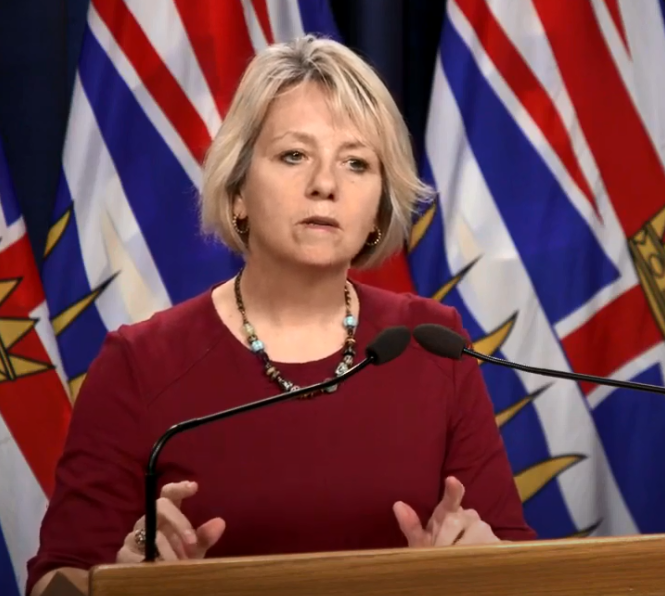Over the weekend, 296 new COVID-19 cases have been confirmed across B.C., bringing active case numbers up to 1,107 as of Monday, August 31st.
So far, 5,790 people across the province have contracted the illness, 440 of which have been in the Interior Health region.
To date, Dr. Bonnie Henry, Provincial Health Officer said 4,406 people have fully recovered.
Breaking down the new case numbers further:
- Friday to Saturday: 86
- Saturday to Sunday: 107
- Saturday to Sunday: 101
- 7 new cases in the Interior Health region.
Since the start of the pandemic, 16 infections have been confirmed in the Kootenay Boundary Region, with three more added between August 14th to the 27th.
Four more deaths have been attributed to COVID-19 in B.C., adding up to 208 deaths since the outbreak began.
As August comes to a close and September begins, Henry urged caution for the Fall months.
“Now we must slow down on our social interactions and we must prepare for the respiratory season ahead,” said Henry. “To be successful in this next phase, we have to step back to allow us to safely move forward in this pandemic.”
Henry suggested returning to using enhanced layers of protection to protect B.C.’s vulnerable population.
Henry said B.C. residents should remain washing their hands often, keeping group sizes small, staying home if you are sick, and wearing a mask when physical distancing is difficult.
“Those are the guidelines that we need to use in our own personal setting right now to make sure that we can continue to do the important things we need to do in our communities,” explained Henry.
Of the guidelines put in place, Henry said staying home if you are not feeling well is one of the most important.
“It can be difficult to tell the difference between a cold, allergies, influenza and COVID-19, as a result, the first step for everyone is to stay home if we’re not 100% healthy. It can be a challenging thing, I know that, but the bar to stay at home has to be lower than we’ve ever had it before,” said Henry.
Employers, caregivers and parents are asked to prepare in case a worker or child has to stay home for an extended period.
“This is a time when we need to continue to be flexible, to ensure that we’re giving employees what they need to stay home or work from home without recrimination or financial harm,” said Henry. “We all need to be prepared now for whatever challenge may emerge to ensure we can continue to protect our most vulnerable.”







